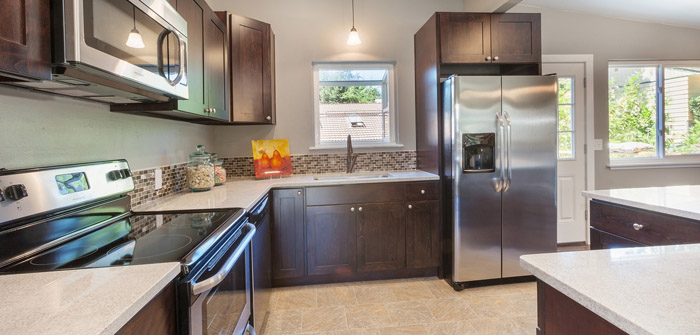In the modern, fast-paced world, we all seek efficiency and convenience in our daily lives. One major avenue where this need is prominently reflected is in our choice of home appliances. However, buying brand new appliances can be a significant financial burden – this is where second-hand appliances become an incredibly appealing option.
Not only do they save money, but they are also a sustainable choice, extending the life of these products and reducing waste. In this post, we will share essential tips for buying second-hand appliances to ensure you get the best value for your investment.
- Assess Your Needs and Budget
Before you even begin your hunt, define what you need. Whether it’s a washing machine, refrigerator, or oven, know your specifications. Establish a clear budget. Buying second-hand means lower prices, but you still need a budget range to guide your choices.
- Check the Appliance’s Age
Ask the seller about the age of the appliance. Typically, you want something that isn’t too old – generally under five years is a good rule of thumb. This ensures that the appliance is likely to have a reasonable life span left and is more energy efficient.
- Inspect the Appliance Thoroughly
Don’t rush this step. Examine the appliance for any damage, wear, and tear. Check for any rust, broken parts, or unusual noises. If possible, request to see the appliance in action before you buy it.
- Research the Make and Model
Once you’ve identified a potential purchase, research the make and model online. Look for product reviews, recall notices, and average lifespan – this will give you a clearer picture of what to expect.
- Ask for the Appliance’s History
Enquire about any repairs that have been done or if there are existing warranties. This history will provide more context on the appliance’s condition and potential future repairs.
- Negotiate the Price
One of the advantages of buying second-hand appliances is that prices are often negotiable. Don’t be afraid to make a reasonable offer, but also be prepared for some back and forth with the seller.
- Consider Transportation and Installation Costs
When calculating the total cost, don’t forget to include transportation and installation. Some sellers might offer delivery, but for others, you may need to arrange this yourself.
- Seek Professional Opinion
If you are unsure about the condition of the appliance, consider getting it inspected by a professional service technician. The experts at https://www.nationalappliancerepairs.com.au can offer insightful advice and help you decide if the appliance is a good buy or if it might end up being a money pit.
- Check for Energy Efficiency
Older appliances tend to be less energy efficient. Look for the energy rating label on the appliance – a higher star rating means the appliance will use less electricity, saving you money in the long run.
- Know the Return or Warranty Policy
Second-hand doesn’t always mean “as-is”. Some used appliance stores offer warranties or at least a return period. Make sure you understand these policies before you make a purchase.
- Sanitise and Clean
Once you’ve made your purchase, give the appliance a thorough cleaning. For some appliances, like refrigerators or washing machines, it might be worth investing in a professional deep cleaning.
- Be Patient
The perfect appliance might not appear right away. It’s worth waiting for an appliance that meets all your criteria rather than rushing into a purchase that you might regret later.
- Verify the Seller’s Reputation
Before making a purchase, do a bit of a background check on the seller. Whether it’s an individual or a store, look for reviews or ratings online. A reputable seller should have a history of satisfied customers.
- Ask for the Owner’s Manual
Request the original owner’s manual from the seller. This manual will provide you with detailed information on how to use, maintain, and troubleshoot the appliance, which is especially helpful for avoiding unnecessary repairs.
- Compare Prices
Before finalising your purchase, check the prices of similar used appliances from different sellers, as well as the price of a new model. This will help you to ascertain whether you are getting a good deal.
- Inspect the Appliance’s Cords and Plugs
Make sure that the electrical cords are in good condition and the plugs are intact. Frayed cords or damaged plugs are not only a safety hazard, but could also indicate potential electrical problems within the appliance.
- Test All the Features and Functions
Don’t just settle for seeing the appliance turn on – ask to test all the features and functions to ensure they are working as they should. For instance, if it’s a washing machine, are all the cycles working? Does the oven heat to the correct temperatures?
- Check for Spare Parts Availability
Before purchasing a second-hand appliance, research whether spare parts are easily available. Some older models may have limited parts availability, making repairs challenging and potentially costly in the future.
- Consider the Appliance’s Size and Fit
Make sure the appliance will fit in your intended space. Measure the area where you plan to place the appliance and compare it with the dimensions of the product. Also, consider the pathway the appliance needs to travel to get to its spot – will it fit through doorways and hallways?
- Enquire About Previous Ownership
Ask the seller about the previous owners and the usage conditions of the appliance. For example, an appliance from a single-person household might have seen less wear and tear than one from a large family.
- Look for Any Signs of Pest Infestations
Inspect the appliance for any signs of pest infestations such as droppings or chewed wires. Pests can significantly damage an appliance and may lead to further issues down the line.
- Seek an Extended Warranty
Some used appliance stores might offer extended warranties for an additional fee. While this might increase the initial cost, it could save you money if the appliance needs repairs down the line.
Final Thoughts
Buying second-hand appliances is an excellent way to save money and make a more sustainable choice for your household. However, it’s essential to approach this process with caution and thoroughness. By following these tips, you’ll be well on your way to securing a high-quality, second-hand appliance that meets your needs, budget, and contributes positively to your home life.
Happy appliance hunting!





